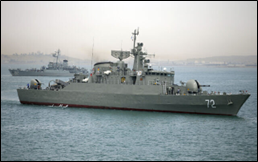Academy SITREP – Iran Sends Warship to Red Sea
January 2, 2024

What has Happened: As we anticipated in our most recent ATW, tensions with Iranian-backed proxy forces (and risks to shipping) in the region have significantly increased. Last evening, it was reported that the Iranian warship Alborz entered the Red Sea through the Bab-el-Mandeb Strait. On Sunday, U.S. Navy helicopters from the USS Eisenhower Carrier Strike Group fired on Houthi rebels (in self-defense) who were attempting to board a Maersk cargo ship off Yemen, killing 10 fighters and destroying 3 boats. Operation Prosperity Guardian, led by the U.S. Navy (including nine other nations) was launched on December 19th in response to ... Academy SITREP – Iran Sends Warship to Red Sea


